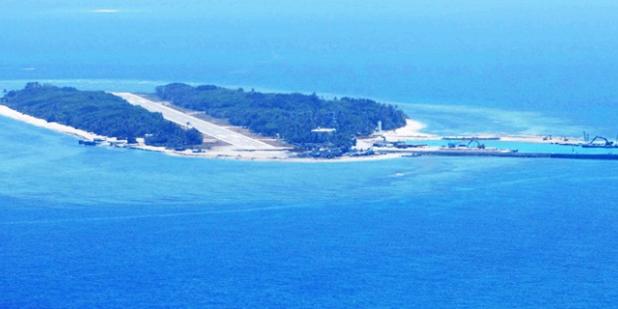Join us for a free one-day workshop for educators at the Japanese American National Museum, hosted by the USC U.S.-China Institute and the National Consortium for Teaching about Asia. This workshop will include a guided tour of the beloved exhibition Common Ground: The Heart of Community, slated to close permanently in January 2025. Following the tour, learn strategies for engaging students in the primary source artifacts, images, and documents found in JANM’s vast collection and discover classroom-ready resources to support teaching and learning about the Japanese American experience.
Trans-Regionalism and Economic Co-Dependency across the South China Sea
Public talk exploring the violate and political nature of the South China Sea.
Where

Throughout history, the South China Sea has been a maritime zone that saw primary economies of its littoral zones exercise influence over smaller, outlying economies by binding the latter into co-dependent relationships with the former. This may be witnessed in such areas as the currency systems adopted by the smaller economies, alignment of foreign and trade policies with those of the larger economies, and in the ways in which the trade of products from one economy to another was developed from being uni-directional and non-crucial, to being one where the economies became mutually dependent. This trans-regional economic phenomenon may be witnessed between China and the Malay Region during the tenth to fourteenth centuries. This paper seeks to explore the multi-facetted nature of the economic interaction between these two regional economies, and how a vertically integrated economic zone developed across the South China Sea over the course of the early second millennium AD between these two economic regions.
Derek Heng is Professor and Chair of History at Northern Arizona University. He specializes in the pre-modern trans-regional history of Maritime Southeast Asia and the South China Sea, utilising textual and archaeological data to study the interactions between Southeast Asia and China, and their impact on the state formation process in coastal Southeast Asia.
Featured Articles
Please join us for the Grad Mixer! Hosted by USC Annenberg Office of International Affairs, Enjoy food, drink and conversation with fellow students across USC Annenberg. Graduate students from any field are welcome to join, so it is a great opportunity to meet fellow students with IR/foreign policy-related research topics and interests.
RSVP link: https://forms.gle/1zer188RE9dCS6Ho6
Events
Hosted by USC Annenberg Office of International Affairs, enjoy food, drink and conversation with fellow international students.
Join us for an in-person conversation on Thursday, November 7th at 4pm with author David M. Lampton as he discusses his new book, Living U.S.-China Relations: From Cold War to Cold War. The book examines the history of U.S.-China relations across eight U.S. presidential administrations.




